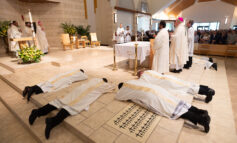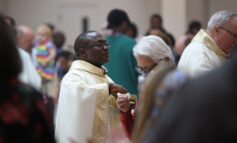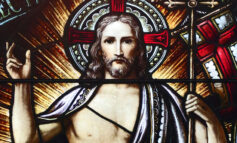By Father John Bayer
Special to The Texas Catholic
A rising pastoral topic in the Church these days is the proper way to respond to those who say they are transgender. As Catholics, a good place from which to orient ourselves is Amoris laetitia by Pope Francis.
Pope Francis does not see the transgender movement positively, because it promotes “an ideology of gender that ‘denies the difference and reciprocity in nature of a man and a woman and envisages a society without sexual differences, thereby eliminating the anthropological basis of the family.” Part of our response, he says, is to emphasize that “biological sex and the socio-cultural role of sex (gender) can be distinguished but not separated” – we cannot “sunder what are inseparable aspects of reality” (56).
I called this a pastoral topic in the Church, but it is obviously also a topic in society at large. Many people are unwilling to trust Pope Francis, and so they want to separate our biological sex (that is, our physical constitution according to masculine and feminine reproductive roles) and our gender (that is, the socio-cultural expression of masculinity and femininity). Sometimes they have understandable motivations. Someone may want to separate sex and gender, for example, because a psychologist claims the only way to resolve a child’s anxiety is to affirm his or her preferred gender. And who does not want to have compassion upon a child, especially one at risk of harming himself? How can we defend the truth about human sexuality with compassion in a pluralistic society? Fortunately, there are very powerful philosophical and scientific arguments showing that the most compassionate and rational response preserves the connection between our sex and our gender.
I recently read a helpful book, which I recommend to anyone called to address this issue in our polemical times: When Harry Became Sally: Responding to the Transgender Moment, by Ryan T. Anderson. In a short article like this, I cannot explore all the arguments Anderson makes about sex and gender, or all the scientific data he reports about the best therapies for persons who experience “gender dysphoria” (that is, the feeling of alienation from one’s biological sex). So, I’d like to share only one of his most powerful arguments: severing the connection between sex and gender by attempting to change genders very often ignores the real problems afflicting a patient.
In one part of the book, Anderson lets those who regretted their efforts to transition from one gender to another tell their stories. They are men and women who thought changing genders would make them happy, but instead discovered that attempting to do so only led them to ignore the psychological wounds that were the real source for their dysphoria. Many were victims of inflexible stereotypes or bullies who made them feel inadequately male or female. Some were victims of sexual abuse, isolation and personal trauma. All wished that their doctors and friends had been slower to encourage them to transition and more interested in discovering why they wanted to transition. Rather than jump immediately to dramatic social, hormonal and surgical interventions, Anderson argues the most compassionate response is to ask why our loved ones feel alienated from their bodies.
In another chapter, Anderson reports that between eighty and ninety-five percent of children with gender dysphoria eventually reconcile themselves with their biological sex during puberty (assuming their puberty is not arrested by hormonal interventions). According to clinical research, one reason this happens to the overwhelming majority is that children who claim to be transgender are often reacting because of urgent social or relational concerns, and not because of a precocious metaphysical conviction about their gender. Other factors can predispose a child to transgender feelings as well. Should we not search for their true concerns, rather than subject these children to all the known and unknown negative consequences of social, hormonal and surgical transitioning?
I cannot imagine the pain experienced by those who feel alienated from their bodies in this way. Anderson’s book is filled with data arguing that the most compassionate response is to help them to reconcile with their bodies. The Gospel can promote this reconciliation. For God has a wonderful plan for our bodies, whether big or small, strong or weak, shapely or not. And among the “many rooms” he has prepared for us (Jn 14:2), there are plenty for girls who do not like dolls and boys who like to bake, along with so many other varied personalities. Finally, through his incarnate Son and their common Spirit, the Father promises to make right all our stories – no matter what has happened to us – and to integrate our bodies, minds and spirits into a single ray of love shining into eternity.
Father John Bayer, O.Cist., is a theologian and monk at the Cistercian Abbey of Our Lady of Dallas in Irving.



